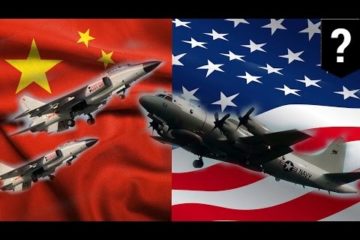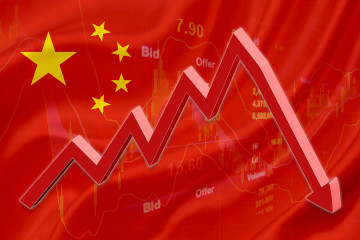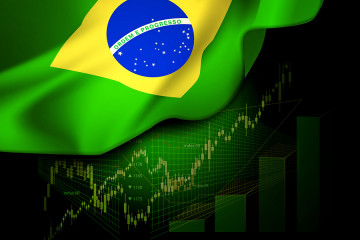How to Go Broke Buying Low, Selling High on Chinese Markets

©2015 Bloomberg News
NPRCNT6TTDS8
(Bloomberg) — Betting that identical stocks will trade at similar prices in China and Hong Kong is proving a great way to lose money.
The mainland premium on dual-listed shares has surged to an average 113 percent from 30 percent a year ago, burning anyone who sold short China’s high-priced stocks to fund the purchase of cheaper equities in Hong Kong. Valuation gaps reached the widest since 2009 on Wednesday, according to a Hang Seng index that gives greater weight to the biggest companies.
As China’s record-breaking rally leaves the principles of value investing behind, RS Investment Management Co. says arbitragers are giving up on the premise that shares should cost roughly the same on either side of the border. On the mainland, traders are making so much money that there’s little incentive for them to venture into Hong Kong, according to Shenwan Hongyuan Group Co., China’s third-biggest brokerage by market value.
“They’re no longer jumping in on it like they had been in the past,” said Tony Chu, a Hong Kong-based money manager for RS Investment, which oversees about $20 billion. “That has to do with global flow impacting the Hong Kong market, while on the other hand, A shares are continuing to go up.”
It’s not that Hong Kong stocks are doing badly — the Hang Seng China Enterprises Index is up 14 percent this year through Wednesday. That just pales in comparison to the mainland, where the Shanghai Composite Index has surged 58 percent and shares have added more than $4 trillion of market value. The Hong Kong Enterprises gauge rose 0.2 percent today as of 10:05 a.m. local time, while the Shanghai index slipped 1 percent.
Sentiment Rally
Chinese investors opened an unprecedented 4.44 million new stock accounts in the final week of May, and have borrowed a record $348 billion to bet on further equity gains. The Shanghai Composite climbed to a seven-year high this week, even as weak trade data signaled a worsening outlook for the world’s second- biggest economy.
“The rally in the A-share market has been massive and it is, arguably, mostly driven by investor sentiment rather than fundamentals,” said Gerry Alfonso, a sales trader at Shenwan Hongyuan in Shanghai.
The divergence is confounding predictions that the Hong Kong-Shanghai exchange link would help eliminate valuation gaps in the two markets. When the program began in November, prices of dual-listed shares were roughly matched. Now all bar two of the 69 shares that trade on both exchanges are cheaper in Hong Kong, according to data compiled by Bloomberg.
BlackRock’s Bet
The gaps have widened because Hong Kong and Shanghai have different short-term dynamics, Hong Kong Exchanges & Clearing Ltd. Chief Executive Officer Charles Li said in a Bloomberg television interview on Wednesday. The differences will narrow because there’s no reason for the same shares to trade at such varied prices, he said.
BlackRock Inc., the world’s biggest asset manager, said Monday it prefers cheaper Hong Kong-listed shares, especially small and medium-sized companies. Mainland stocks look “frothy,” the firm said in an e-mailed report.
While prices between the two markets should merge in the long run, there’s no guarantee it will happen any time soon, said Arthur Kwong, Hong Kong-based head of Asia Pacific equities at BNP Paribas Investment Partners, which oversees $584 billion globally.
“In the short term, there may be more discrepancies,” Kwong said.
To contact Bloomberg News staff for this story: Kana Nishizawa in Hong Kong at knishizawa5@bloomberg.net; Zhang Shidong in Shanghai at szhang5@bloomberg.net; Kyoungwha Kim in Hong Kong at kkim19@bloomberg.net To contact the editors responsible for this story: Sarah McDonald at smcdonald23@bloomberg.net; Richard Frost at rfrost4@bloomberg.net John McCluskey







No Comment